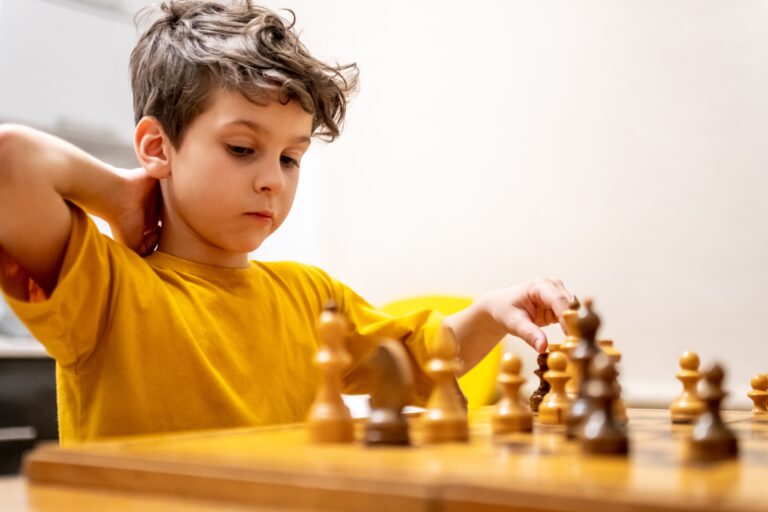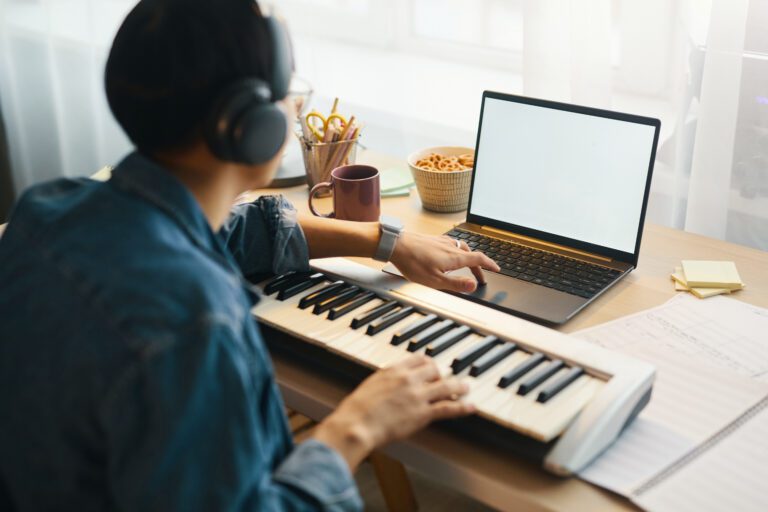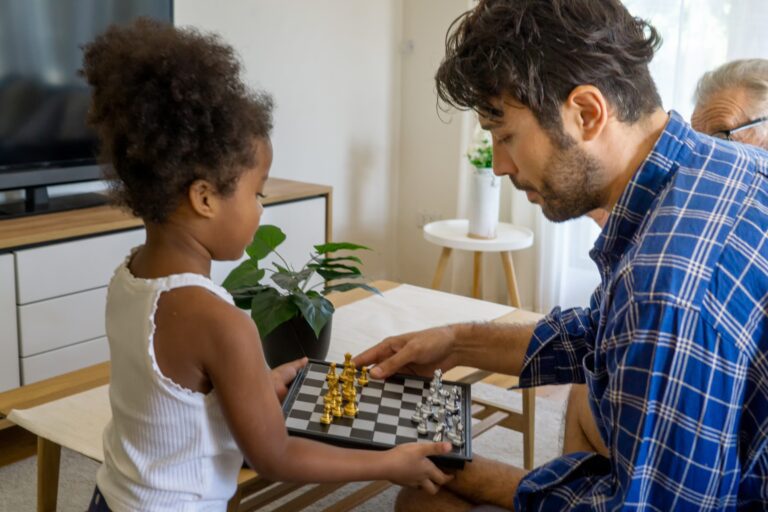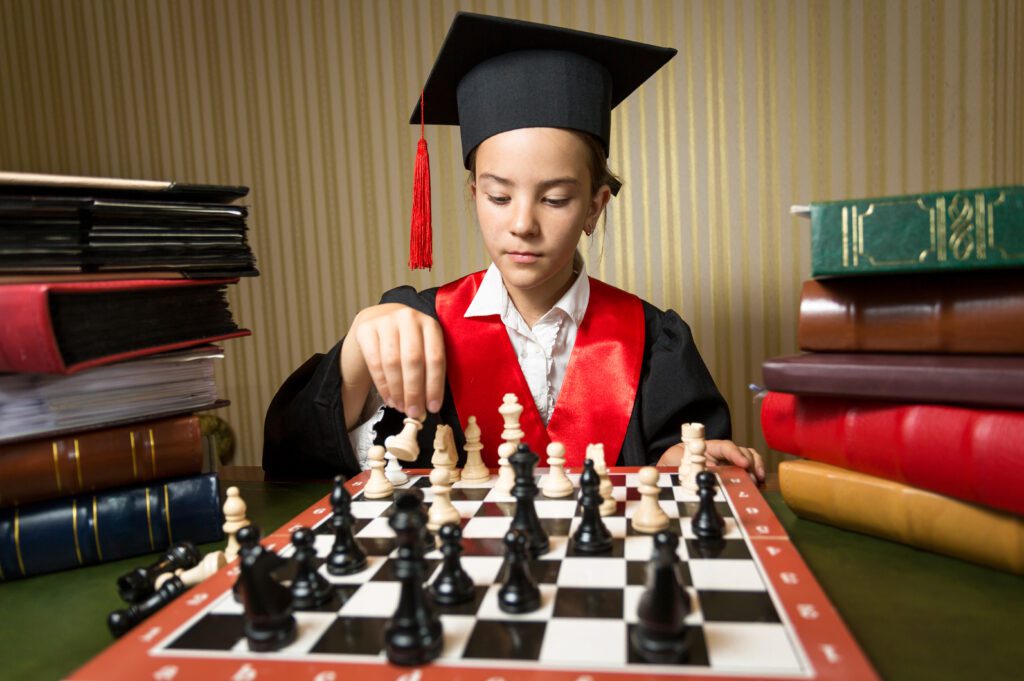How Music Education and Chess Build the Same Cognitive Muscles
At first glance, music and chess might seem worlds apart—one rooted in creative sound, the other in silent strategy. But neuroscientists and educators agree: both music education and chess activate and develop the same cognitive muscles.
From memory and problem-solving to focus and discipline, these two skills don’t just make you smarter in one area—they strengthen your brain for life.
Whether you’re a parent choosing between music or chess classes, or a curious learner exploring both, this guide shows how music and chess train the mind in strikingly similar ways.
🧠 1. Memory & Pattern Recognition

Both music and chess rely heavily on pattern memory.
🎵 In Music:
Remembering note sequences, scales, and chord progressions
Recalling entire compositions or improvisation frameworks
Internalizing rhythm patterns
♟️ In Chess:
Memorizing openings, tactical motifs, and endgame patterns
Visualizing past game strategies and move sequences
Both activities strengthen short-term and long-term memory, especially for visual and auditory learners.
🔍 2. Focus and Concentration

Distractions destroy both a music performance and a chess game.
🎼 Musicians:
Must focus on multiple elements simultaneously (notes, timing, dynamics, technique)
Learn to stay mentally present during long practices and live performances
♟️ Chess players:
Require deep, undivided attention for calculating multiple move possibilities
Must avoid impulsive moves by controlling their thought flow
Practicing either helps build mental stamina and mindfulness—crucial for academics, work, or exams.
🧩 3. Problem-Solving and Critical Thinking

Music and chess constantly present problems to solve—though in different forms.
🎵 In Music:
Interpreting complex rhythms or challenging sections
Solving technique issues (like tricky fingering or breath control)
Composing melodies that “work” musically
♟️ In Chess:
Solving tactical puzzles
Planning combinations and countermoves
Strategizing against an opponent’s long-term plan
Both develop analytical thinking, trial-and-error learning, and creative problem solving.
🧘♀️ 4. Discipline and Deliberate Practice

Mastering either art requires years of structured, mindful practice.
Shared Habits:
- Repetition with awareness
- Setting goals (learning a piece / improving ELO rating)
- Tracking progress and reflecting on mistakes
- Practicing under pressure (performances or tournaments)
Students who engage in music or chess from a young age tend to show greater perseverance and self-control in other areas of life too.
🔀 5. Decision Making Under Pressure

Whether on stage or in the middle of a chess match, quick thinking is essential.
In Both:
- Every decision affects the outcome (a wrong note or bad move can derail things)
- You learn to stay calm under pressure, adjust, and recover gracefully
- Builds confidence, emotional regulation, and resilience
This type of cognitive training transfers to real-world decision-making, such as exams, interviews, and communication.
🧠 6. Brain Development & Neural Connectivity

Scientific research shows that both music and chess activate both hemispheres of the brain, enhancing connectivity between regions.
- Cognitive Gains Include:
- Improved executive function (planning, multitasking, inhibition)
- Enhanced visual-spatial reasoning
- Faster auditory and visual processing
- Stronger working memory and emotional intelligence
Children exposed to music and/or chess often show higher academic performance, especially in subjects like math and language.
🎹 Learn Music and Build Brain Power at The Mystic Keys

At The Mystic Keys, we believe music is more than just art—it’s brain-building education. In fact, growing research highlights the powerful connection between music education and chess in boosting cognitive development and lifelong learning.
Our online one-on-one Zoom sessions are designed to nurture:
Focus, discipline, and memory
Creative expression and analytical thinking
We teach Piano, Guitar, Drums, Vocals, and Music Theory—with certified Grade 8 and Trinity teachers. You’ll get personalized lesson notes, recordings, and expert guidance every step of the way.
🎵 Whether you’re a curious learner or preparing for exams, we’ll help you think smarter, play better, and grow musically and mentally.
🧠 Final Thoughts: Two Sides of the Same Brain
Music and chess may speak different languages—but they both train the brain in powerful ways.
Whether you’re reading a score or calculating your next move on the board, you’re practicing:
- Deep focus
- Fast decision-making
- Creative strategy
- Pattern memory
- Emotional control
So don’t choose one over the other—explore both if you can. They’re not just hobbies… they’re mental workouts that last a lifetime.
For more information and exciting resources about learning music, visit our website at The Mystic Keys. For more music content and exciting offers follow us on
Facebook, Instagram, YouTube, LinkedIn, Twitter, Pinterest, and Threads,
Related Blogs
Music Theory Guide For Beginner’s
This Music Theory Guide is perfect for beginners who want to understand how music works—from notes and scales to chords and rhythm. It lays a strong foundation that helps musicians of all levels gain clarity and confidence in their playing, composing, or singing.
The Best Way to Train Your Ear for Music
A well-trained ear is one of the most valuable tools any musician can have. Whether you’re a singer, instrumentalist, producer, or composer, your ability to recognize pitch, rhythm, harmony, and melody will significantly enhance your creativity and confidence.
The voice is an incredible gift. It’s how we sing, teach, inspire, and connect. But like any instrument, it needs proper care to remain strong, clear, and resilient. Vocal strain is a common challenge faced not only by singers, but also by teachers, speakers, coaches, content creators—anyone who relies on their voice daily.








